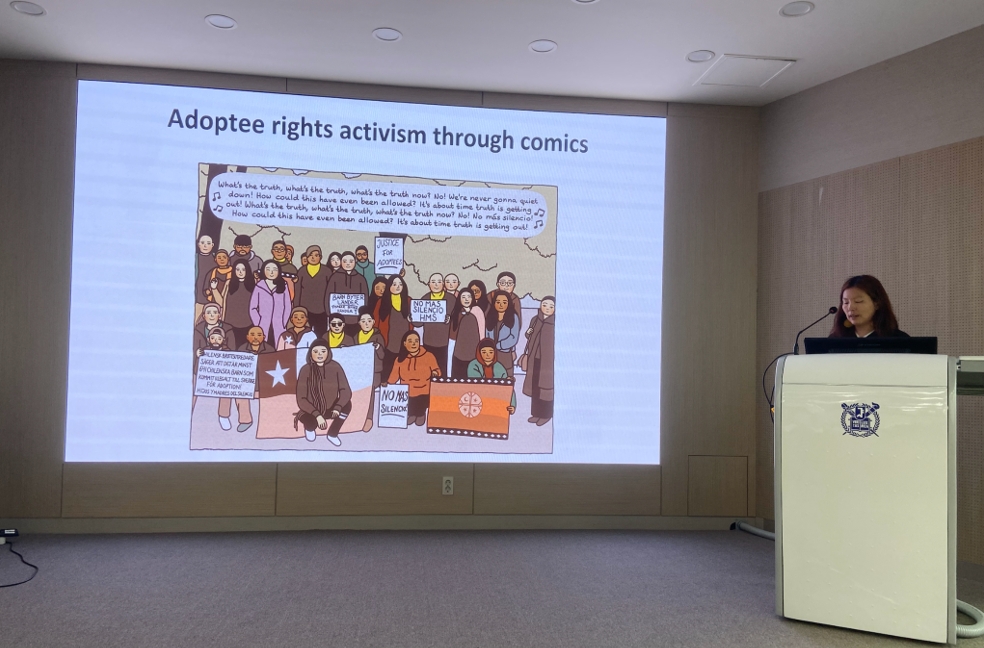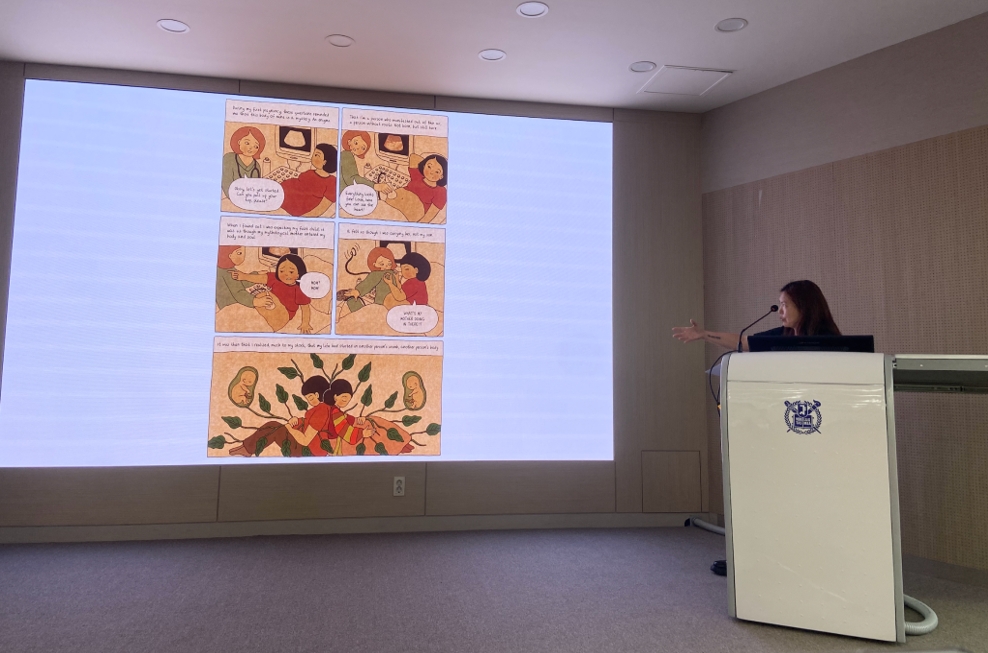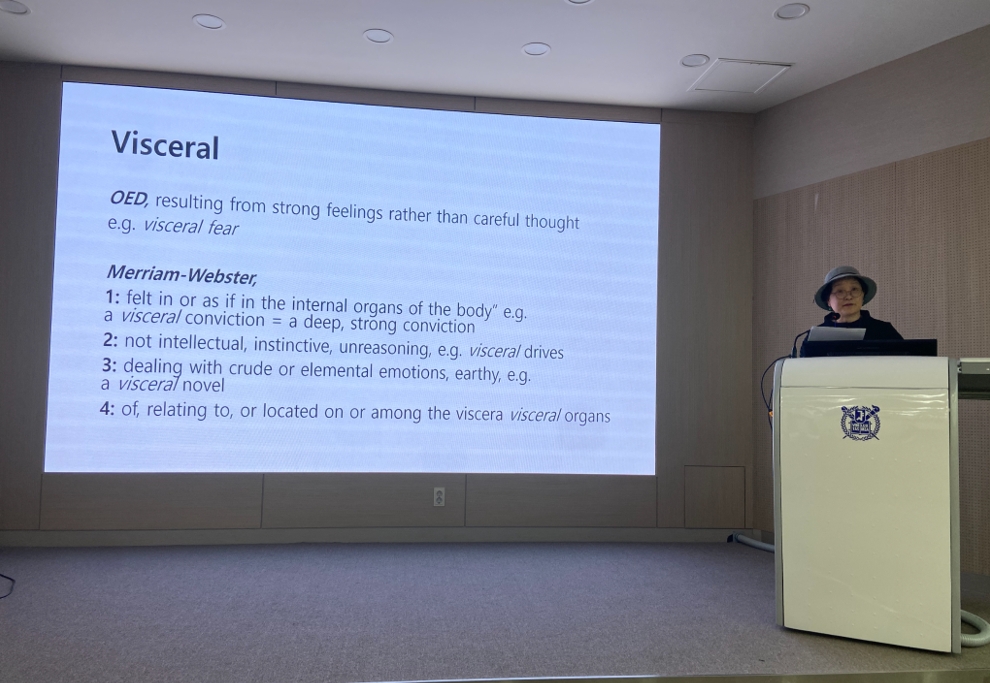In recent years, interest in contemporary Asian culture and media has surged worldwide, reflected in both personal engagement and official recognition. While Asian narratives have long been a part of literary and visual traditions, the contributions of female Asian writers and artists, in particular, have historically been overlooked in the West. The current cultural moment therefore presents a critical opportunity to expand the canon and fully embrace a richer, more diverse spectrum of Asian voices.
In this spirit, Seoul National University’s Department of English Language and Literature co-hosted a conference on May 10 with the Korean Association for Feminist Studies in English Literature (FSEL), an academic society dedicated to advancing novel interpretations of English and American literature through a feminist lens. Titled Asian Feminisms and Contemporary Cultural Production, the conference focused on topics such as Korean literature in translation, transnational adoption, and diaspora poetics, aiming to highlight the subjectivity and diversity of Asia-born and Asian diasporic writers. The event brought together both scholars and those in the arts, promoting a space for open dialogue and interdisciplinary exchange.

Poster for Asian Feminisms and Contemporary Cultural Production
One of the special sessions featured a talk by Lisa Wool-Rim Sjöblom, a comic book artist, writer, and adoptee rights activist. Currently in the midst of producing her third book, Sjöblom spoke of her work on writing graphic novels that document not only her own transnational adoptee experience but also those of others. She highlighted how mainstream adoption narratives are dominated by the voices of adoptive parents, while adopted individuals themselves are actively pushed aside. Through her art and advocacy, Sjöblom challenges these narrow portrayals and calls for greater visibility and a more nuanced understanding of the complexities of adoptee experiences.

Lisa Wool-Rim Sjöblom on adoptee rights activism through comics
Sjöblom also discussed the strengths of the comics medium, emphasizing its versatility in conveying a wide variety of narratives. Drawing on her experience creating commissioned comics for the international NGO Civil Rights Defenders, she reflected on the manner in which she portrayed activists living under threat. By altering biographical details and rendering their appearances in a stylized cartoon form, she was able to shed light on their activism while protecting their identities and ensuring their safety. Sjöblom has also used comics to capture deeply personal moments—such as meeting her biological mother—while maintaining her anonymity and privacy. Had an alternative visual medium such as film been used, techniques like face-blurring or voice alteration would have been essential and likely distracting. Instead, by leveraging the creative liberties inherent in the comic form, Sjöblom has been able to seamlessly deliver complex stories with subtlety and discretion.
Elaborating further on her own adoptee story, Sjöblom presented panels from her debut novel Palimpsest: Documents from a Korean Adoption. In her narrative, she illustrates the moment she learned she was pregnant with her first child and saw the fetus for the first time by ultrasound. The sequence serves as an emotional projection of her experience, which Sjöblom reflected on, stating, “I felt as if the baby was my mother because it was my first biological relative ever.” This sentiment is rendered viscerally in the comic, as her illustrated self seizes the midwife and demands, “What is my mother doing in there?” The scene culminates in the largest panel on the page, showcasing a heavily stylized image of Sjöblom and her mother back-to-back, visually aligning and juxtaposing their experiences of motherhood. Palimpsest is not anchored in strict realism, yet its fantastical elements infuse the narrative with an emotional resonance that realism alone could not achieve.

Lisa Wool-Rim Sjöblom on her debut novel Palimpsest
On the overarching theme of “Disrupted Selves,” Professor Chung Eun-Gwi of Hankuk University of Foreign Studies delivered a lecture titled “Visceral Verse: The Transgressive Poetics of Kim Hyesoon.” Returning to a more traditional literary form of poetry, Professor Chung analyzed the work of one of South Korea’s most prominent poets and the feminist politics imbued in her prose.
Kim’s poetry is marked by a litany of visceral, grotesque, and transgressive imagery. Her verses are saturated by graphic depictions of corporeality and bodily substances—guts, feces, blood, and vomit—frequently confronting what is socially forbidden or repressed. As Professor Chung explained, instead of shying away from the label of the abject, Kim embraces it wholeheartedly, and in turn, subverts the misogynistic perspective of female bodies as sources of fear and revulsion in patriarchal society.

Professor Chung Eun-Gwi on Kim Hyesoon’s transgressive poetics
Asian Feminisms and Contemporary Cultural Production brought together participants from all walks of life, each contributing a diverse range of personal experiences and expertise. Domestic and international professors, alongside postgraduate scholars, engaged with the prose and filmography of Asian writers through rigorous dissection. A writer and illustrator drew out personal insights from her activist work, amplifying the voices of transnational adoptees and activists like herself. Meanwhile, a curator examined the theme of corporeality through selected pieces from Connecting Bodies: Asian Women Artists, an exhibition featuring 130 works by contemporary female artists from eleven countries across Asia. With the richness and depth of its content, the conference offered something truly meaningful to everyone involved.
Written by Hee Seo Lee, SNU English Editor, heeseolee@snu.ac.kr

